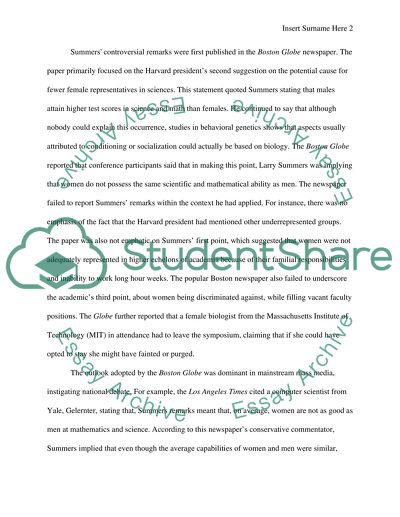Cite this document
(“Analysis of Media Coverage of the Summers Controversy Essay”, n.d.)
Analysis of Media Coverage of the Summers Controversy Essay. Retrieved from https://studentshare.org/gender-sexual-studies/1626735-analysis-of-media-coverage-of-the-summers-controversy
Analysis of Media Coverage of the Summers Controversy Essay. Retrieved from https://studentshare.org/gender-sexual-studies/1626735-analysis-of-media-coverage-of-the-summers-controversy
(Analysis of Media Coverage of the Summers Controversy Essay)
Analysis of Media Coverage of the Summers Controversy Essay. https://studentshare.org/gender-sexual-studies/1626735-analysis-of-media-coverage-of-the-summers-controversy.
Analysis of Media Coverage of the Summers Controversy Essay. https://studentshare.org/gender-sexual-studies/1626735-analysis-of-media-coverage-of-the-summers-controversy.
“Analysis of Media Coverage of the Summers Controversy Essay”, n.d. https://studentshare.org/gender-sexual-studies/1626735-analysis-of-media-coverage-of-the-summers-controversy.


